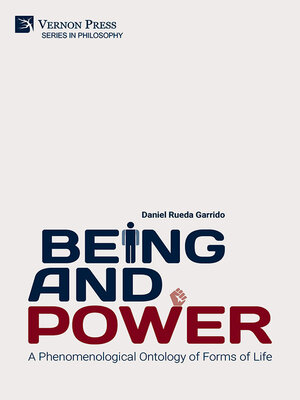Being and Power
ebook ∣ A Phenomenological Ontology of Forms of Life · Vernon in Philosophy
By Daniel Rueda Garrido

Sign up to save your library
With an OverDrive account, you can save your favorite libraries for at-a-glance information about availability. Find out more about OverDrive accounts.
Find this title in Libby, the library reading app by OverDrive.



Search for a digital library with this title
Title found at these libraries:
| Library Name | Distance |
|---|---|
| Loading... |
Why do we act as we do? Why do we assume that the way of being and behaving in our community is right, good, and common sense? Why do we fail to understand those who are, act, and feel differently? These are some of the questions that this book raises and attempts to answer. This ontology is rooted in the phenomenological tradition but with the innovation of taking the "form of life" as the central ontological unit. We are our form of life, but, as a transcendental-immanent reality, this is not directly equivalent to culture or society; it is rather the "political" realisation in the world of an image of the human being shared by a given community. This overcomes the traditional dualities of individual and society, consciousness and body, facticity and freedom, actuality and possibility. The subject is a subject because it identifies with that image, which is equivalent to the intersubjective consciousness of how one should act and be in the world. This gives rise to multiple forms of life. The latter implies a certain power to be who one wants to be. In this way, the book is an invitation to self-examination, for if our form of life is voluntary (i.e., capitalism), it shatters the illusion that one cannot live in any other way, and places us before the anguished but inevitable task of justifying its adoption or resorting to its abandonment. The book offers a dynamic analysis of human existence as the actualisation of a form of life that is, at the same time, the exercise of a certain power over those who seek to live otherwise, especially when that form is institutionalised by a government as the essence of the national or transnational community.







